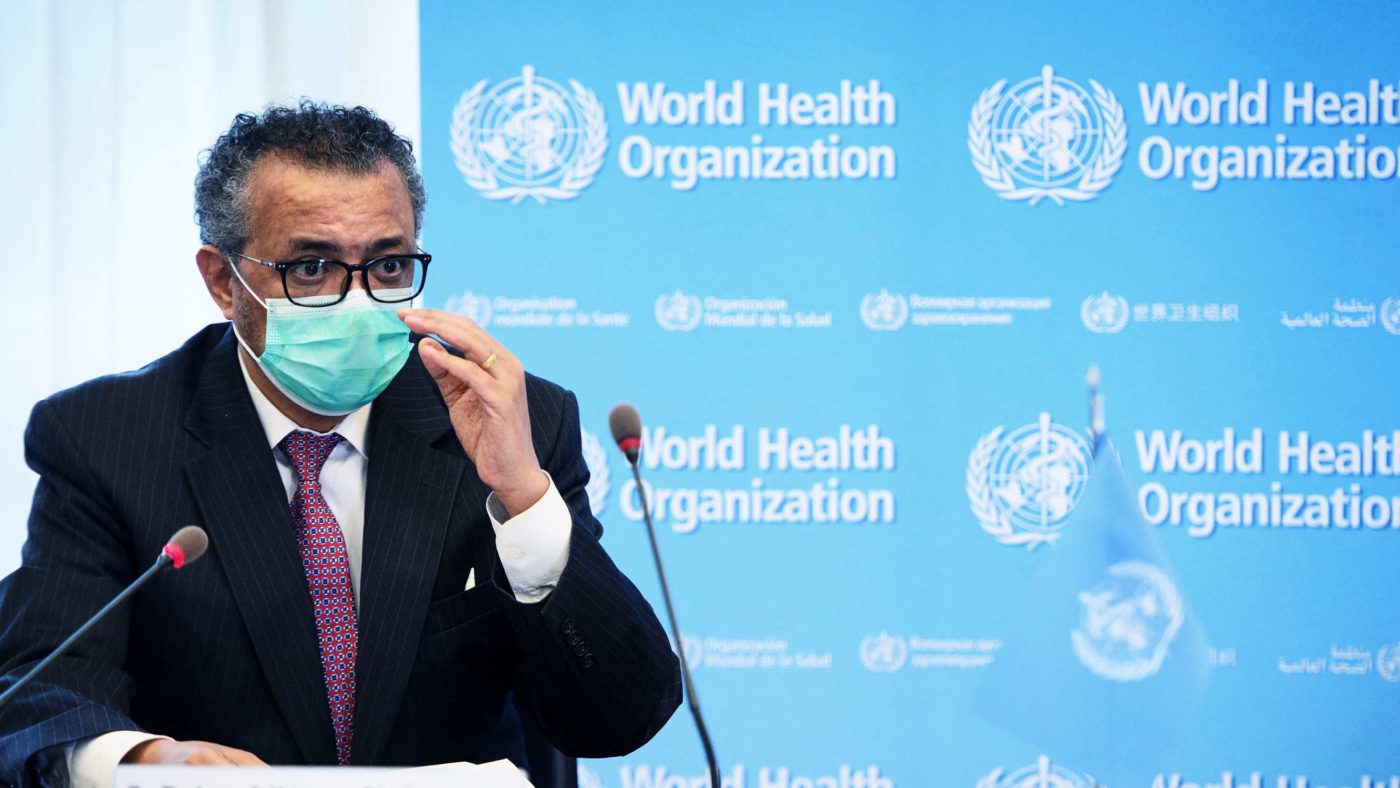If the World Health Organization wanted to prove beyond doubt that it is no longer fit for purpose, it couldn’t have done a better job than to make the announcements it has made this week.
On Monday, the WHO celebrated World No Tobacco Day by giving its Special Director-General Award to India’s Health Minister, Dr Harsh Vardhan. What life-saving work has Dr Vardhan done to merit such a prestigious gong? One thing stood out, as WHO boss Dr Tedros Adhanom Ghebreyesus explained on Twitter: ‘His leadership was instrumental in the 2019 national legislation to ban E-cigarettes & heated tobacco products. Thank you, Minister!’
India has 120 million smokers. Thanks to Dr Vardhan, they no longer have the option of switching to a vastly safer substitute. The main beneficiary of the ban on e-cigarettes has been the India Tobacco Company, which is part owned by the Indian government. This should merit international condemnation. Instead, the WHO has slapped the Indian government on the back.
India is by no means the worst country to be honoured by the WHO. A few days earlier, the WHO gave Syria a seat on its executive board. Lest we forget, the Assad regime has been responsible for bombing hundreds of hospitals and has tortured, murdered and imprisoned hundreds of thousands of people during what the WHO coyly describes as a “protracted political and socio-economic crisis”.
Belarus was also quietly appointed to the WHO’s executive board at the weekend despite recently forcing a Ryanair plane to land in Minsk to facilitate the capture, arrest and likely torture of a political dissident. Often described as the last dictatorship in Europe, Belarus’s leader Alexander Lukashenko received 80% of the vote in the last election, a suspiciously high figure for such an unpopular man, albeit less than the 95% racked up by Assad. Belarus has effectively reintroduced gulags in recent years. Still, at least it doesn’t encourage people to vape.
Of course, realpolitik means that international agencies have to deal with some pretty unpleasant regimes, but there is a difference between being diplomatic with dictators and warmly embracing them. As Hillel Neuer says: “Electing Syria to govern the world’s top health body is like hiring a pyromaniac to be the town fire chief.” Tom Chivers also reached for an analogy when he said: “Giving people tobacco-control awards for banning vaping is like giving people a Nobel Peace Prize for banning diplomacy.” In truth, it is difficult to find any metaphor that makes the situation at the WHO sound more absurd than it is.
What is the point of an international health agency if it won’t stand up to governments that effectively encourage smoking and kill health workers?
We got an idea of what the WHO thinks its job is on Monday when it published new guidelines on how the most important SARS-CoV-2 variants of concern should be described. Although the agency is not squeamish about honouring murderers and dictators, it is ultra-woke when it comes to naming diseases after their countries of origin. It has developed an alternative nomenclature based on the Greek alphabet which is almost impossible to remember, but which avoids geographical indicators. For example, the Indian variant (B.1.617.2) is now to be known as Kappa and the UK/Kent variant (B.1.1.7) is now Alpha.
The WHO has not always been this way. Ebola is a river in the Congo and Zika is a forest in Uganda, but that did not stop diseases being named after them. The WHO seems happy enough calling the Spanish Flu, Hong Kong Flu and Asian Flu by their names. But since Covid-19 emerged, it has become highly sensitive to the possibility that the people of India, South Africa, Kent and – above all – China might be offended by having a virus associated with them.
This is not the WHO’s first venture into extreme political correctness. Last March, it put out a briefing paper urging the media to avoid such supposedly inflammatory terms as ‘Covid-19 cases’, ’victims’ and ‘suspected cases’. Director-General Tedros later declared that: “Stigma, to be honest, is more dangerous than the virus itself. And let’s really underline that: stigma is the most dangerous enemy.”
But it wasn’t, was it? The virus was considerably more dangerous than inoffensive phrases and imaginary racism, and the WHO did an astonishingly bad job of protecting us from it. It gave credence to the Chinese Communist Party’s propaganda, it advised against travel bans, it said that face masks were useless and insisted that the virus wasn’t airborne.
Nobody’s perfect, but the WHO is almost a parody of corruption and incompetence. While it embraces regimes which slaughter doctors and congratulates politicians for protecting the cigarette industry, it focuses on policing language like a snowflake student union. It is almost as if it wants to be defunded and replaced with something better. So what are we waiting for?
Click here to subscribe to our daily briefing – the best pieces from CapX and across the web.
CapX depends on the generosity of its readers. If you value what we do, please consider making a donation.


